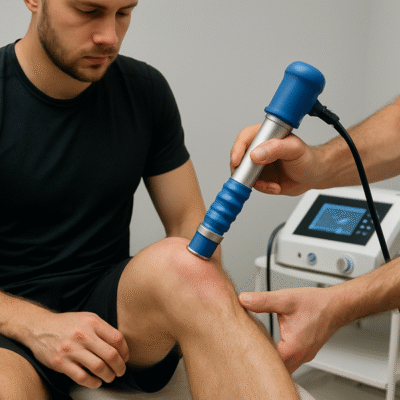Better patient care is within reach with a technology-driven Hospital Information Management System. With computerized software, hospitals can better handle patient data, automate processes, and minimize errors. Hospital Management Information Systems for Healthcare empower physicians, nurses, and personnel to view the right information quicker, allowing them to make quicker decisions with better results. It ensures the smooth running of hospitals while fulfilling the objective of delivering the patient with quality, safe, and timely care in an efficient and dependable manner.
Understanding Hospital Information Management System (HIMS)
Hospital Information Management System is a great web-based system that mechanizes day-to-day hospital operations. All the different functions are put together in one system, and therefore the healthcare services are smooth, accurate, and rapid. The hospitals can save time, reduce errors, and give more time to patient care by implementing the best HMIS software in India.
Among the most important processes is patient record management via Electronic Health Records (EHR) and Electronic Medical Records (EMR). They assist in giving the doctors and nurses the full medical history at any given time, hence enabling them to make informed decisions.
Billing and Invoicing is also integrated into the system, thus the payment becomes simple for the hospitals. Additionally, Pharmacy Management keeps the drugs safe, and Laboratory Information System (LIS) and Radiology Information System (RIS) improve reporting time as well as diagnosis delay time.
With the integration of AI into Hospital Information Management Systems, hospitals are capable of predicting the outcomes of the patients, automating repetitive procedures, and administering customized treatments, thus improving healthcare services.
Key Components of a Technology-Driven HIMS
Hospital Management Information System (HIMS Software) is a system of high importance in order to facilitate efficient hospital administration and patient management. The major Hospital Management Information Systems for Healthcare elements are:
Electronic Medical Records (EMR) and Electronic Health Records (EHR): These include full patient histories, where the information can be accessed with ease for accurate diagnosis and care.
Billing and Invoicing: Automated billing eliminates the drawbacks, streamlines the payment cycle, and ensures clear fiscal control.
Pharmacy and Laboratory Management: A proper HIMS Software integrates pharmacy and lab management systems, with accurate medication dispensing and effective test reporting.
Inventory and Assets Management: The module allows the hospitals to track medical supplies, equipment, and resources effectively, reducing wastage and timely availability.
Human Resource Management: HIMS streamlines payroll, staff scheduling, and performance monitoring to improve workforce productivity.
Radiology Information System (RIS): Provides computerized imaging information that allows physicians to view results immediately and make informed decisions.
AI for Hospital Information Management Systems: Machine learning empowers predictive analytics, avoids repetitive processes, and aids doctors in evidence-based clinical decision-making.
These all join forces to make information flow smoothly between departments. Through integration of medical, administrative, and financial functions, technology-driven HIMS facilitates greater efficiency, fewer errors, and better patient outcomes.
How HIMS Enhances Patient Care
HMIS in Healthcare is meant to improve patient care by consolidating medical, administrative, and support services under a single system. Hospitals are able to ensure HMIS Software processes the information in the correct manner, with quicker work processes, and facilitates better decision-making between employees and medical staff.
One of the strongest strengths of the current systems is the use of AI in Hospital Information Management Systems, where predictive analytics, early diagnostic support, and automation of clerical work are conceivable. This keeps doctors away from excessive paperwork and less patient time.
There are several modules that align with the patients’ experience. Diet Management offers proper nourishment to the patients based on their treatment plan. CSSD Module helps maintain sterilized tools in a manner that infection is least likely to take place. Proper biomedical waste monitoring makes the hospital environment as clean and hygienic a place can be, promoting general well-being.
The top HMIS software in India for hospitals also has features of enhanced participation like Complaint Management, where patient grievances are logged and addressed promptly, leading to improved patient satisfaction. Some other features provided are health checkup packages and online consulting, which boost health care accessibility as well as patient-friendliness.
By integrating clinical, financial, and administrative functions, HMIS in Healthcare enables patients to be treated safely, efficiently, and according to their unique requirements. Hospitals become streamlined, patient-focusing organizations where care quality and reliability are the top priorities.
AI in Hospital Information Management Systems
Use of AI in Hospital Information Management Systems is transforming the way hospitals deliver care and conduct their business. Integration of artificial intelligence into a health management information system enables hospitals to benefit from greater precision, improved speed to decision-making, and higher patient satisfaction.
AI facilitates Data Analytics and Reporting, allowing physicians and administrators to analyze large amounts of patient data. This enables right prediction of the health outcome, performance monitoring, and efficiency optimization of the hospital. In Ward / IPD Management, AI facilitates efficient patient admission, bed allocation, and discharge processing.
Administrative regions also stand to gain. Human Resource Management becomes easy with the use of AI-driven scheduling and performance tracking. Reception Management may employ intelligent tools to reduce waiting times and guide patients in a systematic manner. TPAM of insurance claims becomes faster and easier as well.
AI enhances clinical support systems as well. Right from Blood Bank management to safe blood availability and Role and Access management to safe information handling, all processes are streamlined. AI-based Mobile Apps also allow patients to see reports, book appointments, and interact with physicians remotely.
In all, AI in a contemporary health management information system enhances quality care, reduces errors, and offers a more informed patient-focused hospital environment.
Challenges and Solutions in Implementing HIMS
Even though the implementation of a hospital management information system can contribute significantly to making things more efficient, hospitals face challenges while implementing it. Resistance to change is the most frequent challenge. A majority of workers are used to manual work and resist changes in HMIS Software. Simple interfaces and proper training are the remedies to overcome this barrier.
Data protection is also a problem. Since Hospital Management Information Systems in Healthcare contain private patient data, proper protection policies should be enforced. Encryption, access controls, and audits ensure secure handling of data.
It is also difficult to integrate with existing systems. There are a variety of tools a hospital employs, and it is less easy to integrate into a new hospital management system. Having the best HMIS software in India and that which is easily integratable can counter this aspect.
The cost is the other consideration, especially for small hospitals. Modular pricing and cloud applications minimize the cost of implementation.
Finally, management of advanced capabilities like AI in HIMS is a technical skill. Properly trained and ramped-up deployment, the hospitals are capable of unleashing the potential of AI as an analytics, patient care, and decision support engine.
In short, with proper planning, training, and software selection, the hospitals can put HIMS into practice and become wiser, patient-centric care.
Conclusion
A technology-driven HIMS allows hospitals to deliver enhanced, accelerated, and safer treatment to patients. It combines medical, administrative, and supporting processes to eradicate errors, improve decision-making, and improve patient satisfaction. The capability of AI, electronic records, and automated workflow allows the hospital to devote more time to curing patients. A modern HMIS Software is not a step towards digitalization but also towards intelligent and future-specific patient care.



